Iran amputates hands of two thieves in Isfahan
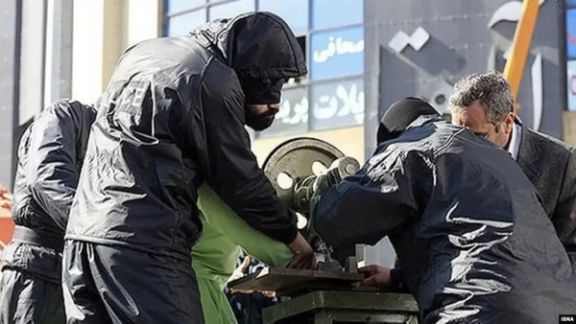
Iran has carried out amputation sentences on two people convicted of theft in Isfahan Central Prison, the head of the Isfahan Justice Department announced on Tuesday.

Iran has carried out amputation sentences on two people convicted of theft in Isfahan Central Prison, the head of the Isfahan Justice Department announced on Tuesday.
Asadollah Jaafari, who did not identify the two men, described them as "professional thieves” with multiple convictions as well as crimes such as destruction and intentional harm.
He added that the sentences were carried out "after undergoing legal procedures in the prosecutor's office, the preliminary court, and the provincial appeals court, with final confirmation of the verdict by the Supreme Court."
However, Jaafari did not provide specific details regarding the specific charges.
International human rights organizations have consistently condemned such punishments.
In April, Mai Sato, the UN Special Rapporteur on Human Rights in Iran, told Iran International in an interview that "corporal punishment, including amputation, is absolutely prohibited under international law. And if executed, will amount to torture or ill-treatment."
The International Covenant on Civil and Political Rights (ICCPR), to which Iran is a signatory, explicitly prohibits inhumane or degrading punishments. Human rights advocates argue that amputation sentences violate the fundamental principle of human dignity enshrined in international law.
At least 237 individuals in Iran were sentenced to amputation between 1 January 2000 and 24 September 2020, with at least 129 of those sentences carried out, according to Ravina Shamdasani, spokesperson for the UN Human Rights Office.
According to Gholamhossein Mohseni Ejei, Iran's judiciary chief, "If theft is proven under the conditions set by Islam, the thief's fingers must be amputated."
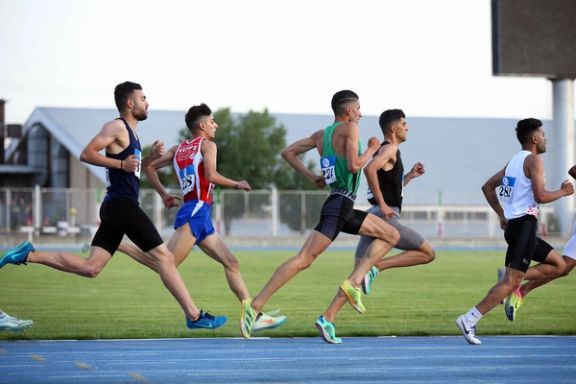
Lawyers of a South Korean woman allegedly raped by Iranian athletes during the 2025 Asian Athletics Championships say Seoul has full jurisdiction over the case, which may lead to life sentences under domestic sexual violence laws, rejecting any external pressure for a settlement.
In a response to Iran International, the legal team at TAERYUN Law Firm said Korean criminal law clearly applies to the case as the alleged assault occurred on South Korean soil.
“Korean criminal law applies to offenses committed within Korea, regardless of nationality or whether the crime occurred during an international competition,” the law firm said.
“No international sports event, diplomatic immunity, or any kind of honor can overshadow the pain of the victim. We will stand by the victim until the end so that she does not suffer alone.”
The suspects—two athletes and one coach from the Iranian delegation—remain in custody after being arrested at a hotel in Gumi on May 31. According to Iranian media, the athletes claimed partial consent; however, authorities rejected that defense and detained all three men.
Grave criminal case, not a diplomatic sideshow, law firm says
TAERYUN is pursuing the case under Articles 297 and 298 of South Korea’s Criminal Act (rape and forcible molestation), crimes that can carry penalties of up to life imprisonment. The firm also said that the case may qualify for aggravated charges under special provisions for sexual offenses.
“This is not a simple legal dispute but a fight to protect the victim’s life,” TAERYUN said. “We will resolutely oppose any external pressure or attempts at settlement.”
The law firm stressed that the victim is suffering from severe psychological trauma, and efforts are underway to protect her identity and mental well-being under Article 30 of the law concerning sexual crimes.
“The victim’s wishes must be fully respected and her protection must be the top priority,” TAERYUN added, warning against any attempt to repatriate the suspects.
Pressure builds in Iran
The case has generated a firestorm of controversy in Iran, where public protests and growing scrutiny of Iran’s sports leadership are prompting officials to distance themselves from the accused and call for resignations.
Earlier in the month, Ahmad Rastineh, spokesman for the Iranian parliament’s Cultural Committee, confirmed that the Minister of Sport, Ahmad Donyamali, had been summoned to explain the incident.
“It was decided that an urgent report on the incident and the violations that occurred be submitted to the Cultural Committee,” Rastineh said.
He added that preliminary investigations revealed mismanagement by team supervisors and that disciplinary action would include suspending the head of the delegation’s security, as well as the team’s head coach and supervisor, until the case is resolved.
Meanwhile, Rouhollah Lak-Aliabadi, spokesman for the Parliament’s Sports Faction, told protesters gathered outside the Iranian parliament that key officials must resign in the wake of the scandal.
“Those responsible must be held accountable. They must resign,” Lak-Aliabadi said in a widely shared video, responding to family members of Iranian athletes demanding the dismissal of senior sports officials.
He criticized public remarks downplaying the seriousness of the incident and rebuked former national football coach Mohammad Mayelikohan’s comment that “this happens in other countries too,” saying: “It may be ordinary elsewhere, but it is not normal for Iran, and we will take this very seriously.”
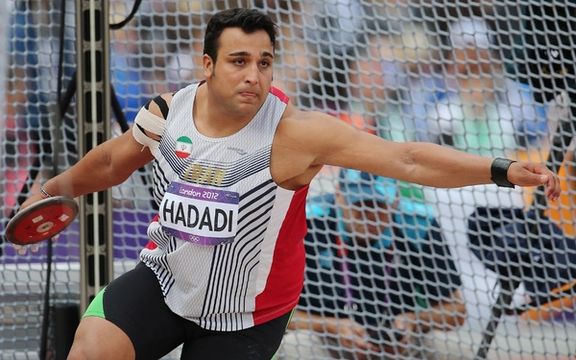
Allegations against federation president resurface
The scandal has reignited long-standing accusations against Ehsan Haddadi, president of Iran’s Athletics Federation. Haddadi, a former Olympic medalist, has faced past allegations, including an unresolved claim of sexual assault.
Protesters outside the parliament accused Hadadi of failing to oversee athlete conduct and accused him of traveling with personal guests while delegating responsibility.
One woman at the demonstration told lawmakers:“I have a young daughter. Yet a bachelor who has an open sexual assault case, was made a federation director. On his first trip with the national team, he abandoned athletes and brought a personal guest.”
Multiple rallies have been held by members of Iran’s track and field community, with thousands signing petitions calling for Haddadi’s removal, citing both the latest incident and past misconduct allegations.
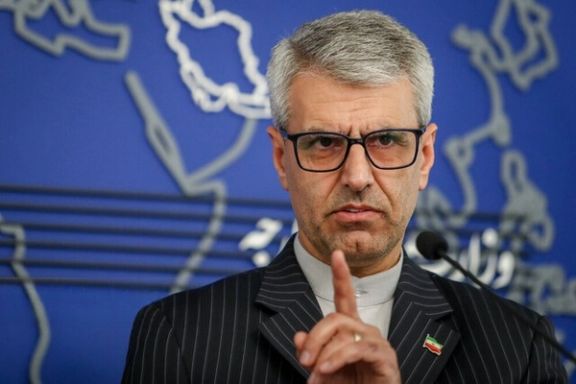
Iran said it will respond firmly to any politically motivated or unlawful action against its nuclear program, as Western powers push for a non-compliance resolution at the UN nuclear watchdog’s Board of Governors meeting in Vienna.
The draft resolution, backed by the United States, France, Germany, and the United Kingdom, follows a confidential report by International Atomic Energy Agency (IAEA) Director General Rafael Grossi, circulated to member states late last month. The report raised concerns over undeclared nuclear activity at multiple Iranian sites and Iran’s continued accumulation of highly enriched uranium.
Foreign ministry spokesperson Esmail Baghaei rejected both the IAEA report and the resolution as politically driven. “Any extralegal action against Iran’s national interests will be met with a strong and proportionate response,” he said in a radio interview aired by Iranian state media on Tuesday.
Baghaei said the report lacked new technical evidence and repeated allegations already resolved under the 2015 nuclear deal. He accused Western governments of attempting to revive closed cases and impose pressure on Iran through the agency’s mechanisms.
“There is no evidence in the report of non-compliance or deviation from peaceful activities,” he added.
He emphasized that peaceful uranium enrichment is Iran’s legal right under the Non-Proliferation Treaty (NPT), and warned that any further escalation would be met with reciprocal steps. He did not specify what measures Iran might take.
Earlier in the week, the spokesperson of Iran's atomic agency, Behrouz Kamalvandi, said that the last resolution by the agency led Tehran to increase its 60-percent uranium production sevenfold, launch 20 cascades of centrifuges, and install new generations of centrifuges.
IAEA chief Grossi said on Monday that while the resolution process is separate from indirect nuclear talks between Tehran and Washington, the two tracks clearly influence one another. “There is no formal link, but there is mutual influence,” he said.
Iran has yet to formally respond to the latest US proposal on the nuclear file. President Donald Trump said on Monday he expected a new round of talks on Thursday, but Iranian officials said that timeline is unlikely. Baghaei later said discussions are being planned for Sunday in Muscat.
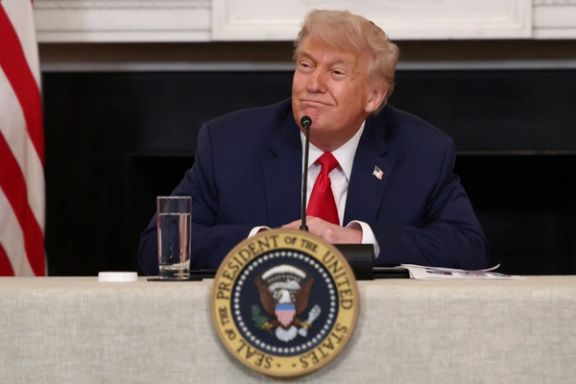
US President Donald Trump said on Monday that Iran is involved in negotiations aimed at securing a ceasefire and the release of hostages between Israel and Hamas in Gaza.
“Gaza right now is in the midst of a massive negotiation between us and Hamas and Israel, and Iran actually is involved,” Trump told reporters at the White House. “We want to get the hostages back.”
Trump gave no further details.
The US has proposed a 60-day ceasefire in Gaza. Israel has accepted the plan, while Hamas has not agreed. The proposal includes the release of 28 Israeli hostages, both living and dead, in exchange for 1,236 Palestinian prisoners and the remains of 180 Palestinians.
Separately, Trump said talks with Iran on its nuclear program were continuing but differences remained. He said Iran wanted to continue enriching uranium, which the US opposes.
“They seek enrichment. We can’t have enrichment,” Trump said.
Earlier on Monday, Iran’s foreign ministry said it would soon present a counter-proposal to a recent US offer, which it has called unacceptable.
Trump told reporters he expected the next round of discussions to take place on Thursday. However, Spokesperson Esmail Baghaei later said the next round of indirect negotiations was being planned for Sunday in Muscat.
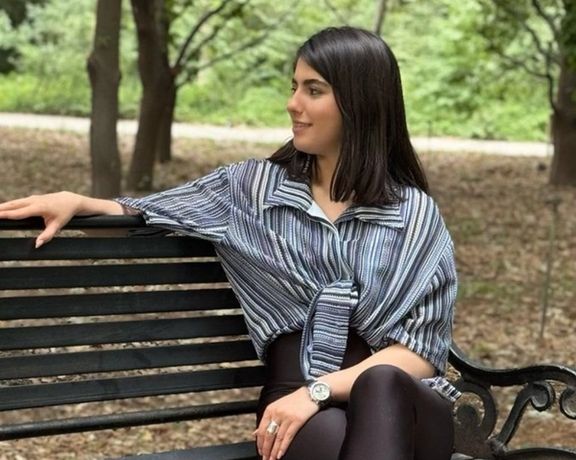
The murder of 24-year-old Elahe Hosseinnejad gripped Iran, sparking grief and anger over gender violence, legal discrimination and the state’s failure to protect women.
Hosseinnejad, a nail technician from Eslamshahr, south of Tehran, vanished on May 25 after leaving work to care for her younger brother.
Her disappearance quickly drew attention after her family raised the alarm on social media, prompting thousands to share her photo in hopes of locating her.
Instagram posts by Hosseinnejad show a determined young woman supporting her family, expressing sympathy for executed protesters and backing the Woman, Life, Freedom movement.
On June 5, police arrested a man in his early 30s in connection with her death. Authorities said he operated an unlicensed taxi and had a criminal record.
Public reaction
The response was immediate. Messages of sorrow poured in from citizens, artists, and public figures.
“One murder victim and 90 million wounded,” many posted on social media.
Zahra Behrouz-Azar, vice president for women and family affairs, wrote on Telegram that the reaction sent a clear message: preventing violence against women is a national demand.
She cited “cultural and economic crises, weaknesses in preventive infrastructure, and gaps in legal and support systems” as causes.
State and police criticized
After her disappearance, many accused the authorities of systemic failure to protect citizens—especially women.
“How is it that thousands of agents and surveillance cameras are present across cities to harass Iranian women for improper veiling, but no measures (are taken) to ensure the safety of citizens, especially women?” activist and former political prisoner Hossein Ronaghi asked on X before Hosseinnejad’s body was found.
Hours after the arrest, police released two videos of the suspect’s interrogation and confession.
In the footage, he admits to trying to steal Hosseinnejad’s phone, stabbing her when she resisted and abandoning her body near Tehran’s airport. One video shows him on the floor during interrogation, recoiling after being slapped.
“The videos of the arrest and interrogation of Elaheh Hosseinnejad’s murderer are enough on their own to make me lose all hope in the improvement of security in this country,” digital rights activist and entrepreneur Nima Namdari posted on X.
“Justice will never be established in a country where the rights of the accused and the principles of fair trial are not respected. As long as there is no justice, there will be no security,” he added.
Legal inequality under scrutiny
The case has revived debate over Iran’s gender-based legal discrimination.
Murder is punishable by death, but if a man kills a woman, the victim’s family must first pay half the value of full blood money (diyeh)—set annually by judicial authorities—to the killer’s family before the execution can proceed.
This does not apply when both victim and perpetrator are male, reinforcing what activists call a system that devalues women’s lives.
“Why should the victim and their family bear the cost of the inequality in the law?” user @mynamefarshad posted on X.
Supporters of Sharia-based laws say the system allows flexibility. In high-profile cases, the state can pay the blood money itself to proceed with execution under Islamic jurisprudence.
Police released Hosseinnejad’s body to her family on Friday. Citizen reports say she was buried immediately, under strict security, without a public announcement in Eslamshahr.
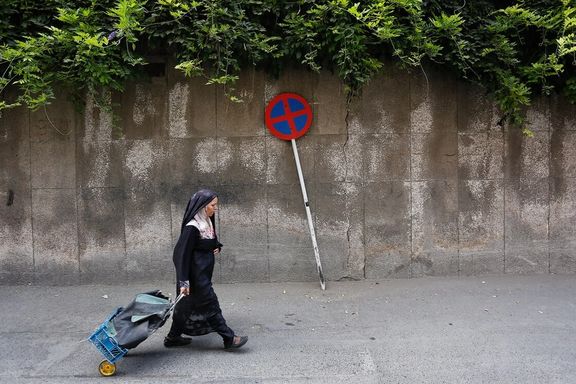
People in Iran are often accused of contributing to the country’s economic woes through wasteful habits—not just by officials, but by one another. But how much truth is there to these claims?
People in Iran are often accused of contributing to the country’s economic woes through wasteful habits—not just by officials, but by one another. But how much truth is there to these claims?
One common claim is that Iranians use far more electricity than other nations. But data from Iran’s Energy Ministry shows that per capita household electricity consumption is about 1,100 kilowatt-hours per year—40% lower than the EU average, and well below usage in the US, Canada, Japan, or even many neighboring countries.
It’s the same story with food.
Iran’s agriculture minister recently criticized Iranians for “excessive consumption” of sugar and cooking oil, asserting that government subsidies are being squandered.
But that assertion appears to contradict data from the UN’s Food and Agriculture Organization (FAO), which shows that Iran’s per capita consumption of both items is below the global average and significantly lower than in nearby countries like Turkey.
Last year, Iranians consumed 2.3 million tons of cooking oil, compared to 3.5 million tons in Turkey, which has a similar population. On a per capita basis, Iranian consumption is 30% lower than the global average.
The minister also claimed that 90% of Iran’s cooking oil is imported at subsidized rates, yet FAO data puts the figure closer to 56%, with imports steadily declining over the past three years.
Sugar tells a similar story. Iranians consume about 10% less than the global average, and nearly half as much as Turks. Far from being excessive, these levels reflect increasing constraints on household consumption.
Chasing the basics
These accusations also overlook a crucial fact: food inflation in Iran is out of control. The price of cooking oil surged 20% in just three months, according to a report by economic outlet Tejarat News on Monday.
Iran’s Statistical Center reports annual inflation of 31% for cooking oil and 41% for sugar.
Such price spikes make basic goods increasingly unaffordable for most households. And the toll is visible in declining food security.
FAO data shows that per capita meat consumption in Iran has fallen by 40% over the past decade, while dairy consumption has dropped by 30%.
A senior food industry official said last week that the average Iranian now consumes 7–10 kilograms of meat per year—consistent with FAO’s estimate of just over 8 kilograms, down from 12 kg just a few years ago.
“Meat consumption in Iran is deeply unequal—some eat nothing, while others manage 20 kilograms a year,” said Masoud Rasouli, secretary of the Meat Production and Packaging Association, adding that the global average is 32 kilograms.
The figures don’t lie: Iranians are not consuming too much—they’re getting by with less.
Contrary to the official line—and even public opinion—excess is not a national trait. It’s an alien concept to the majority chasing the basics.